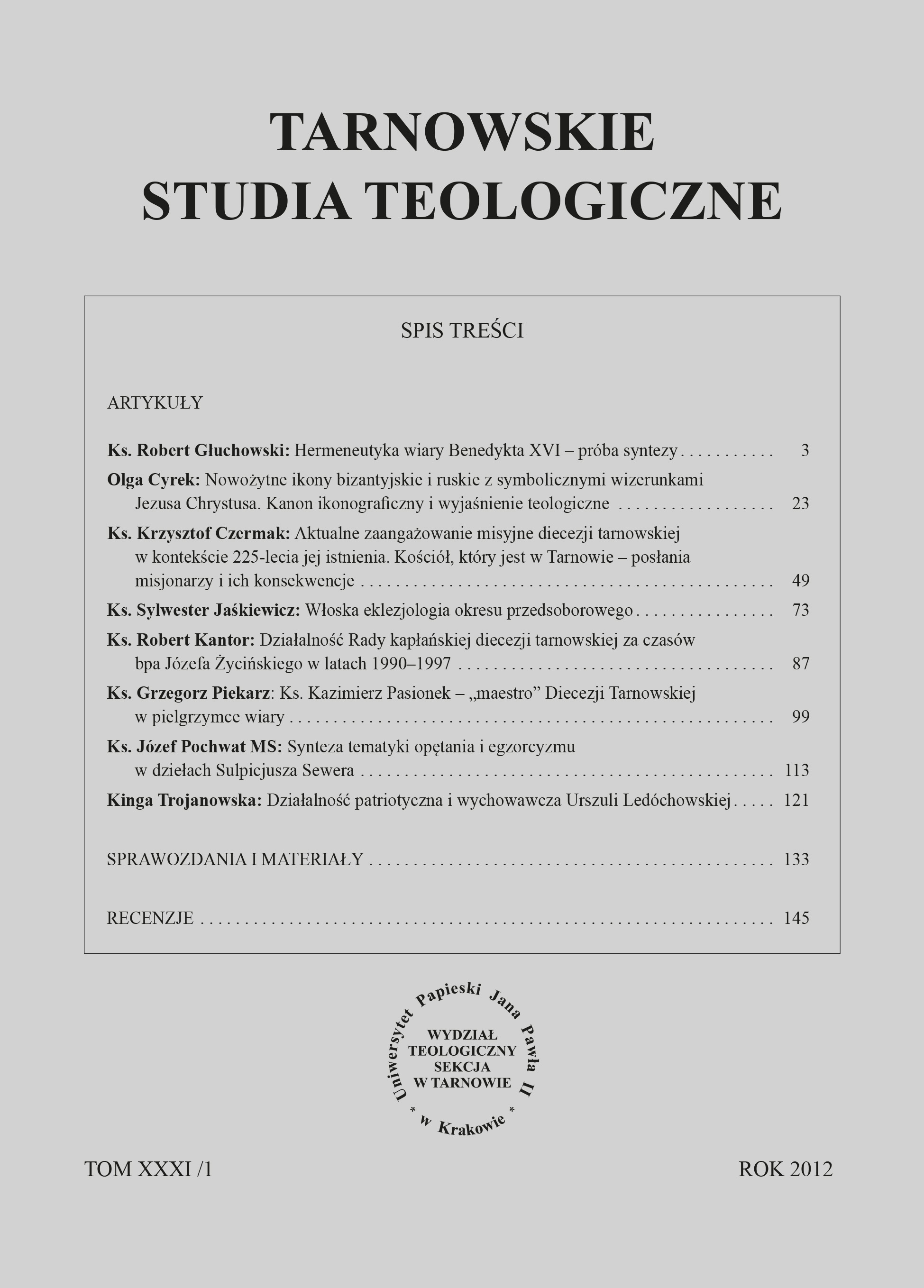Hermeneutyka wiary Benedykta XVI – próba syntezy
DOI:
https://doi.org/10.15633/tts.277Słowa kluczowe:
hermeneutyka wiary, Benedykt XVI, hermeneutyka biblijna, metoda historyczno-krytyczna, Biblia i Kościół, struktura wiary, normatywni teologowieAbstrakt
Benedict’s theological work shows his deep interest of the findings of historical and critical biblical scholarship. This article attempts to show a part of Pope Benedict’s thought at this field. The keyword for this theme is “the hermeneutic of faith”. There are a few steps to understand this. First: the critique of historical criticism as beginning the search for a new synthesis. Second: a question about new hermeneutic based on the historical structure of Christian faith. Third: an asking about a new language (authors of Scriptures as normative theologians). Benedict points out that Scriptures are inseparable united with Church. He represents a deep understanding of the inner logic and necessity of reading of Scriptures from the heart of the Church.Pobrania
Opublikowane
2012-09-09
Numer
Dział
Artykuły
Licencja
Prawa autorskie (c) 2012 Robert Głuchowski

Utwór dostępny jest na licencji Creative Commons Uznanie autorstwa 4.0 Międzynarodowe.
Autorzy publikujący w czasopiśmie udzielają jego wydawcy zgody o następującej treści:
- Autor zachowuje autorskie prawa majątkowe do utworu, a jednocześnie udziela wydawcy czasopisma zgody na jego pierwszą publikację w wersji drukowanej i wersji online na licencji Creative Commons Uznanie autorstwa 4.0 Międzynarodowe oraz zgody na wykonywanie opracowań, w tym przekładów.
- Autor ma możliwość udzielania zgody niewyłącznej na opublikowanie utworu w wersji, która ukazała się w czasopiśmie (np. zamieszczenia go w repozytorium instytucjonalnym lub opublikowania w książce), wraz z informacją o jego pierwszej publikacji w czasopiśmie.
- Autor może umieścić swój utwór online (np. w repozytorium instytucjonalnym lub na swojej stronie internetowej) jeszcze przed zgłoszeniem utworu do czasopisma.

